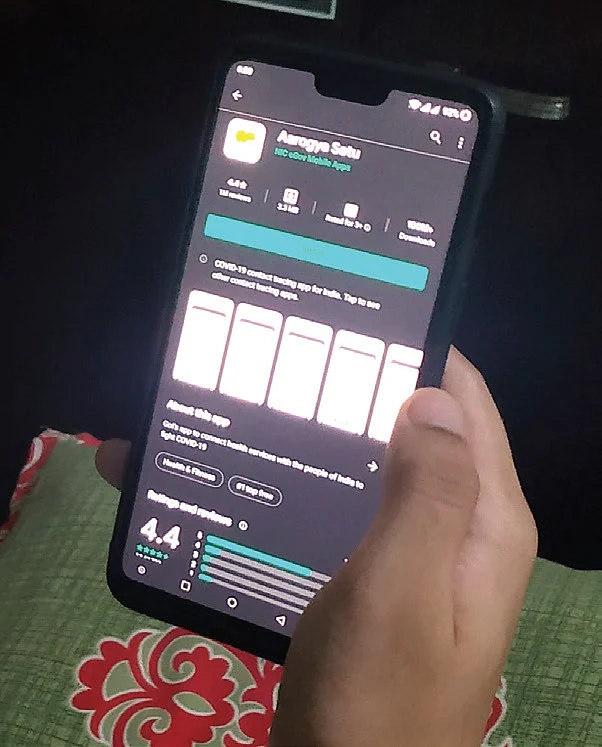Mere paas app hai: Four months later, how good is Aarogya Setu?
Has it helped in tracing contacts or has it made travelling safer? Has it helped contain the virus ? Is it more effective in malls and campuses ? Has it helped identify containment zones ?

Hong Kong this month banned Air India flights from landing for 10 days after a dozen odd Air India passengers were found COVID-19 positive in tests conducted after disembarking. The passengers from India would have gone through the thermal screening at the Indian airports. They would have also flashed their Aarogya Setu app on their smart phones signalling they were not infected before being allowed to board. And yet after they disembarked in Hong Kong, a dozen of them were found to be carriers of the virus.
So, how good is the Aarogya Setu app?
While flights from Mumbai and Delhi are not allowed to land in Kolkata, passengers have been flying to the eastern metropolis by breaking their journey in Lucknow, Gauhati or Bhubaneswar. The app has been ineffective in restricting them.
The app, introduced on April 2, we were informed, would alert the user if he was anywhere near a COVID-19 infected person and help the government in contact tracing.
By using a phone’s Bluetooth and location data, Aarogya Setu lets users know if they have been near a person with COVID19 by scanning a database of known cases of infection. The data is then shared with the government.
Several experts have however warned that Bluetooth apps are bad at discovering new cases of COVID-19. Other experts question why downloading an app that has not been adequately validated for its efficacy is mandatory for travel.
The majority of countries went on to find that contact tracing apps do not work and have rolled them back, said Dr Satchit Balsari, a practising physician and fellow at the FXB Centre for Human Rights at Harvard.
`Traditional contact tracing is very difficult so there is a need to augment it with technologies that are valid. But a public health intervention of this nature should be scaled up only after the technology has been validated,’ said Dr Balsari.
These apps have been found to play some role with populations that have a high penetration of smart phones in smaller areas such as a university campus. But in larger spaces, their efficiency depends on multiple factors. This would depend on their sensitivity to pick up activity with accuracy.
The app has been found unable to pick up details about people on two sides of a shopping mall or even on two sides of a wall. Nor has it been found to be able to pick up the nuances of how the COVID-19 virus is transmitted.
And yet it has been made mandatory for citizens living in containment zones and for both government and private sector employees. In Noida it is mandatory to download it and those who fail to comply can be jailed for six months.
Food delivery start-ups such as Zomato and Swiggy have also made it mandatory as also for those travelling by air and trains.
Minnie Mehta, a Gurgaon based housewife who travelled recently by air from Delhi to Ahmedabad and back said, ` You have to show this app both when you enter the airport and when you go in for a security check otherwise you are not allowed to proceed further.’
Mehta added, `While at the airport, the app informed me , ` Aap kisi sankramit vyakti ke paas nahi hain’ ( You are not close to any infected person)’. I received the same message when I was at the Ahmedabad airport.’ Others have downloaded the app without activating it. Said Tripti Joshi, an entrepreneur, ` I have downloaded it because I may have to travel at a short notice. But I have not activated my app because I find some of its features extremely invasive.’
There are other aspects about this app which have raised eyebrows. Over 70 per cent of India’s population do not possess smart phones and therefore are not in a position to download this app. The option of travelling for them by train or air is foreclosed.
If an individual is tested Covid-19 positive, this information will be fed into the app. But what happens to asymptomatic individuals who are carriers of this virus without themselves knowing they have the infection?
Dr Monik Mehta, a leading cardiologist at the Columbia Asia hospital in Gurgaon claims its only advantage is that it provides one with some insight into our immediate environment. For the present, this is the only app we have till the government or a private operator comes up with something new,’ he said.
India is currently the only democratic nation in the world which has made its Coronavirus tracking app mandatory for millions of people. This at a time when we have no national data privacy law.
Follow us on: Facebook, Twitter, Google News, Instagram
Join our official telegram channel (@nationalherald) and stay updated with the latest headlines